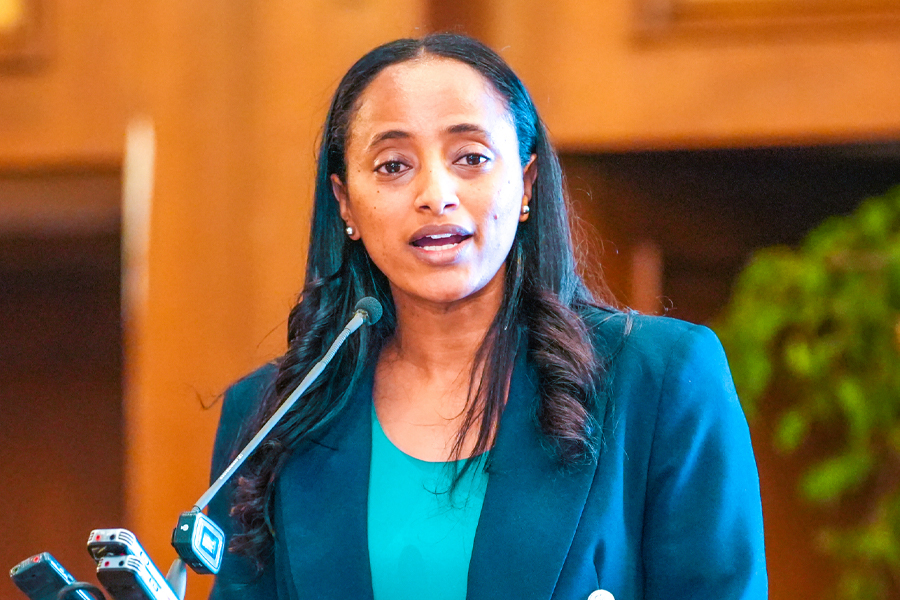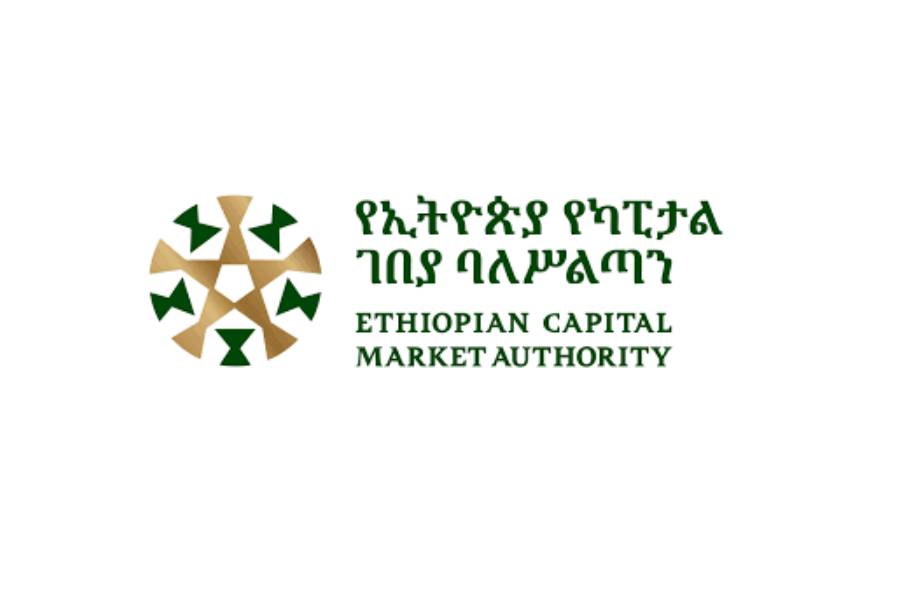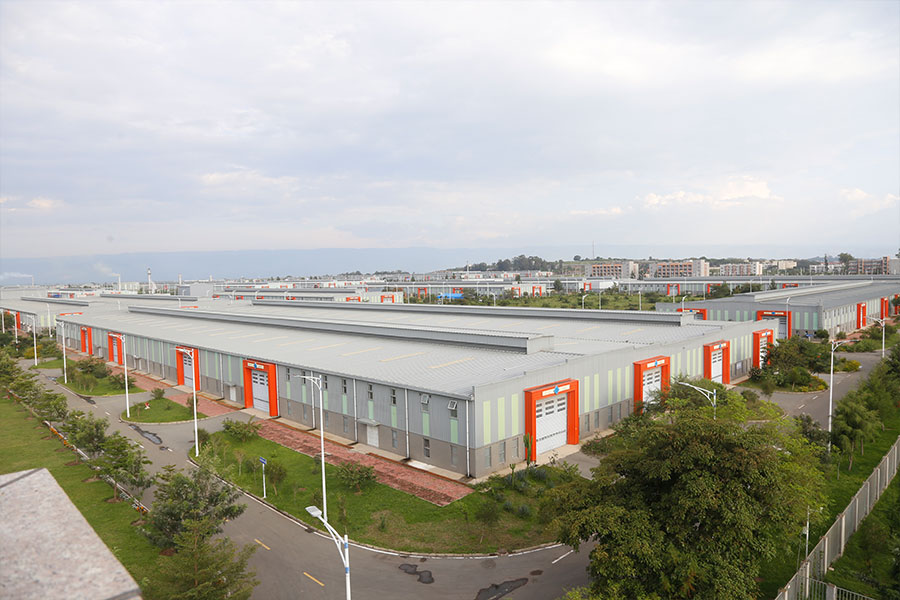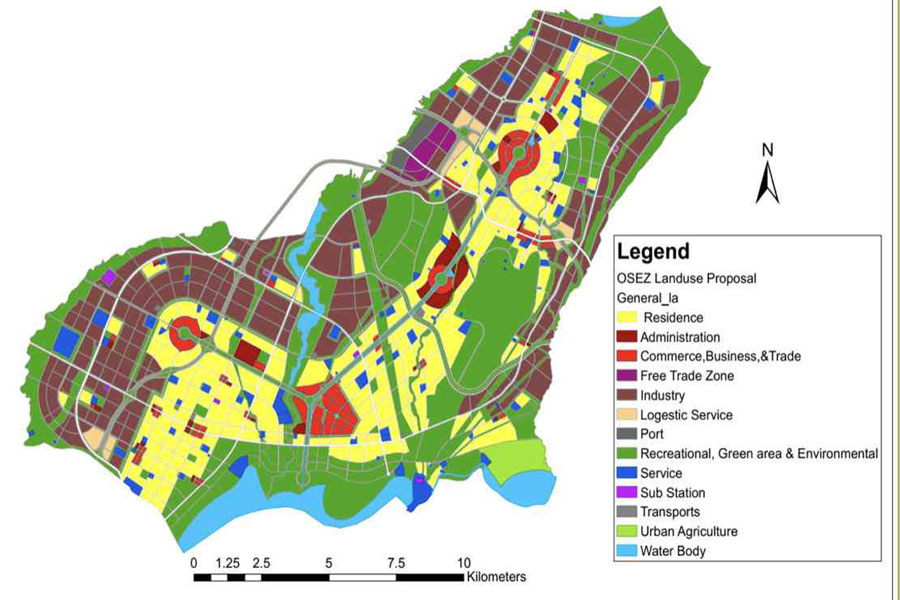
Radar | Jul 06,2025
May 13 , 2023
By MUNIR SHEMSU ( FORTUNE STAFF WRITER )
Export earnings from industrial parks have declined by close to one quarter from last year, with manufacturers leaving their premises unable to keep up with the cost.
The exports, which amounted to 118 million dollars, marked a 24pc decline from the same period last year, according to the nine-month report of the Ethiopian Investment Commission to the Parliament.
Commissioner Lelise Neme attributed the decline to a tail-off in demand for goods from the industrial parks— lagged effects of the exclusion of Ethiopia from the African Growth & Opportunity Act (AGOA) were realised.
A flight of investors from industrial parks was cited as an additional factor, with companies like HopeLun, which had leased out all eight sheds in Bahir Dar Industrial Park, opting to cease operations within the year.
HopeLun was engaged in undergarments production before orders for its products ceased with the expulsion of Ethiopia from preferred access to the US market. The company has millions of dollars worth of inventory within the park waiting for buyers.
An Israeli textile firm, Anbesa Elite Tactical Textile Industry, owned by Leo Isaias, has invested three million dollars and leased out one of the sheds left out by HopeLun since January.
Haron Trading also has obtained two hectares of land to develop its own shed in the park.
Nataniye Kassa, manager at Ethiopian Investment Commission Bahirdar Industrial Park branch, attributed the operational halt to AGOA exclusion.
He recommends that factory space in the sheds costs two dollars per square meter be decreased to incentivize local investors.
"Creating a modality for domestic investor participation in the parks is pivotal," Nataniye told Fortune.
Ethiopia was removed from the list of countries benefiting from duty-free access to the US markets in January of last year due to the war in the north.
Although the warring parties signed an agreement to cease hostilities in November, reinstatement to AGOA has not yet materialized.
During the report to the Trade & Tourism Standing Committee, the Commissioner indicated that a delegation is currently in the US trying to make this a reality.
"We have met all five benchmarks,"
Lelise said regarding criteria set out by the US government for reinstatement. The US accounted for 70pc of all textile exports from Ethiopia in 2020 under the trade opportunity act.
Shortage of forex and lack of interlinkages between industries were other factors mentioned by the Commissioner as contributing to the decreased export volume.
The decreased export numbers of the industrial parks were accompanied by a failure to hit the adjusted Foreign Direct Investment (FDI) targets of four billion dollars set out mid-year. It was possible to get a mere 2.7 billion dollars during the period.
Last month, a policy report by the Japanese National Graduate Institute for Policy Studies (GRIPS) advised that gains from FDI in Ethiopia could be realised through reorientation from “quantity-based investment to quality upgrades”.
It suggested transferring technology and management knowledge, introducing new products or processes, upgrading workers and engineers, procuring domestic inputs and services, and actively assisting domestic firms to participate in global value chains.
Economists advise sole reliance on AGOA might not be the way to go.
"You can't put all your eggs in one basket," said Atlaw Alemu (PhD), an economics lecturer at Addis Abeba University.
He recommends finding alternative markets outside the US that may require promotion and cooperation with embassies.
A World Bank report on Ethiopia's industrial parks in November of 2022 relayed that 95pc of exports from industrial parks in Ethiopia were textiles and garments which are labour-intensive products.
Textile exports going out of the industrial parks did not surprise the expert as he believes comparative advantages lie in abundant resources, with labour being one of them for Ethiopia. Atlaw also cautioned that failing to consider additional costs like transportation and duties aside from labour in optimising the production process might diminish expected comparative advantages.
The report has indicated that the parks had only generated a little over half a billion dollars despite costing double to construct.
Most of the billion-dollar funding for the construction of the parks came from the issuance of Eurobond in 2014 set to mature in December of 2024. Ethiopia has repayment of its sole outstanding international note with the next round of payments slated for June. It has a CCC- rating from Fitch ratings implying substantial credit risk.
PUBLISHED ON
May 13,2023 [ VOL
24 , NO
1202]

Radar | Jul 06,2025

Radar | Apr 27,2025

News Analysis | Sep 01,2024

My Opinion | Aug 26,2023

Fortune News | Nov 20,2021

Commentaries | May 29,2021

Fortune News | Dec 24,2022

Radar | Aug 28,2021

Radar | Aug 03,2025

Viewpoints | Jul 17,2022

Dec 22 , 2024 . By TIZITA SHEWAFERAW
Charged with transforming colossal state-owned enterprises into modern and competitiv...

Aug 18 , 2024 . By AKSAH ITALO
Although predictable Yonas Zerihun's job in the ride-hailing service is not immune to...

Jul 28 , 2024 . By TIZITA SHEWAFERAW
Unhabitual, perhaps too many, Samuel Gebreyohannes, 38, used to occasionally enjoy a couple of beers at breakfast. However, he recently swit...

Jul 13 , 2024 . By AKSAH ITALO
Investors who rely on tractors, trucks, and field vehicles for commuting, transporting commodities, and f...

Oct 4 , 2025
Eyob Tekalegn (PhD) had been in the Governor's chair for only weeks when, on Septembe...

Sep 27 , 2025
Four years into an experiment with “shock therapy” in education, the national moo...

Sep 20 , 2025
Getachew Reda's return to the national stage was always going to stir attention. Once...

Sep 13 , 2025
At its launch in Nairobi two years ago, the Africa Climate Summit was billed as the f...